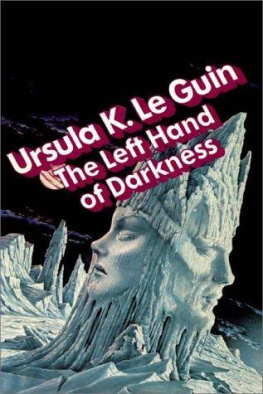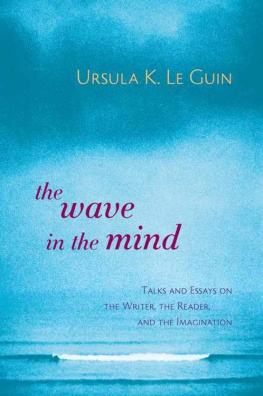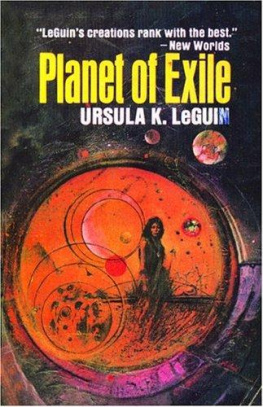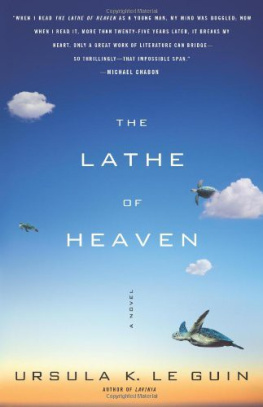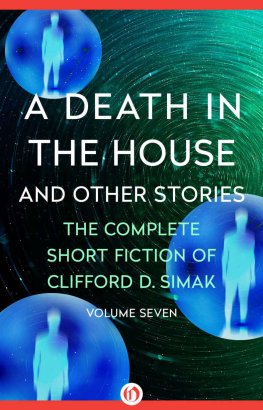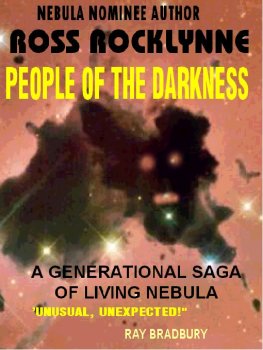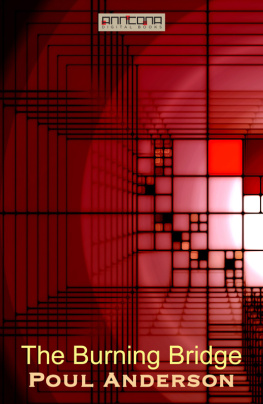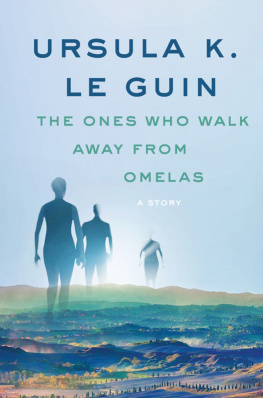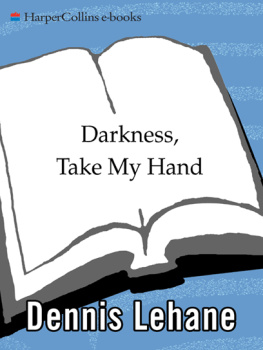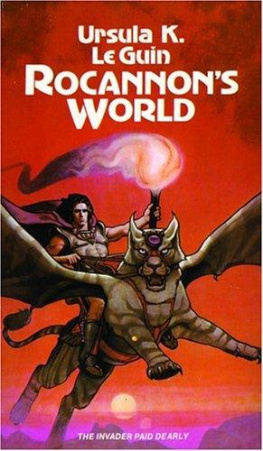THE LEFT HAND OF DARKNESS
by Ursula K.Leguin
The Ekumen 04
WINNER OF THE HUGO AWARD AND THE NEBULA AWARD FOR BEST SCIENCE FICTION NOVEL OF THE YEAR
1969
Dedication:
For Charles, sine quo non
Introduction
-
Science fiction is often described, and even defined, as extrapolative. The science fiction writer is supposed to take a trend or phenomenon of the here-and-now, purify and intensify it for dramatic effect, and extend it into the future. If this goes on, this is what will happen. A prediction is made. Method and results much resemble those of a scientist who feeds large doses of a purified and concentrated food additive to mice, in order to predict what may happen to people who eat it in small quantities for a long time. The outcome seems almost inevitably to be cancer. So does the outcome of extrapolation. Strictly extrapolative works of science fiction generally arrive about where the Club of Rome arrives: somewhere between the gradual extinction of human liberty and the total extinction of terrestrial life.
This may explain why many people who do not read science fiction describe it as escapist, but when questioned further, admit they do not read it because its so depressing.
Almost anything carried to its logical extreme becomes depressing, if not carcinogenic.
Fortunately, though extrapolation is an element in science fiction, it isnt the name of the game by any means. It is far too rationalist and simplistic to satisfy the imaginative mind, whether the writers or the readers. Variables are the spice of life.
This book is not extrapolative. If you like you can read it, and a lot of other science fiction, as a thought-experiment. Lets say (says Mary Shelley) that a young doctor creates a human being in his laboratory; lets say (says Philip K. Dick) that the Allies lost the second world war; lets say this or that is such and so, and see what happens In a story so conceived, the moral complexity proper to the modern novel need not be sacrificed, nor is there any built-in dead end; thought and intuition can move freely within bounds set only by the terms of the experiment, which may be very large indeed.
The purpose of a thought-experiment, as the term was used by Schrodinger and other physicists, is not to predict the futureindeed Schrodingers most famous thought-experiment goes to show that the future, on the quantum level, cannot be predictedbut to describe reality, the present world.
Science fiction is not predictive; it is descriptive.
Predictions are uttered by prophets (free of charge); by clairvoyants (who usually charge a fee, and are therefore more honored in their day than prophets); and by futurologists (salaried). Prediction is the business of prophets, clairvoyants, and futurologists. It is not the business of novelists. A novelists business is lying.
The weather bureau will tell you what next Tuesday will be like, and the Rand Corporation will tell you what the twenty-first century will be like. I dont recommend that you turn to the writers of fiction for such information. Its none of their business. All theyre trying to do is tell you what theyre like, and what youre likewhats going onwhat the weather is now, today, this moment, the rain, the sunlight, look! Open your eyes; listen, listen. That is what the novelists say. But they dont tell you what you will see and hear. All they can tell you is what they have seen and heard, in their time in this world, a third of it spent in sleep and dreaming, another third of it spent in telling lies.
The truth against the world!Yes. Certainly. Fiction writers, at least in their braver moments, do desire the truth: to know it, speak it, serve it. But they go about it in a peculiar and devious way, which consists in inventing persons, places, and events which never did and never will exist or occur, and telling about these fictions in detail and at length and with a great deal of emotion, and then when they are done writing down this pack of lies, they say, There! Thats the truth!
They may use all kinds of facts to support their tissue of lies. They may describe the Marshalsea Prison, which was a real place, or the battle of Borodino, which really was fought, or the process of cloning, which really takes place in laboratories, or the deterioration of a personality, which is described in real textbooks of psychology; and so on. This weight of verifiable place-event-phenomenon-behavior makes the reader forget that he is reading a pure invention, a history that never took place anywhere but in that unlocalisable region, the authors mind. In fact, while we read a novel, we are insanebonkers. We believe in the existence of people who arent there, we hear their voices, we watch the battle of Borodino with them, we may even become Napoleon. Sanity returns (in most cases) when the book is closed.
Is it any wonder that no truly respectable society has ever trusted its artists?
But our society, being troubled and bewildered, seeking guidance, sometimes puts an entirely mistaken trust in its artists, using them as prophets and futurologists.
I do not say that artists cannot be seers, inspired: that the awen cannot come upon them, and the god speak through them. Who would be an artist if they did not believe that that happens? if they did not know it happens, because, they have felt the god within them use their tongue, their hands? Maybe only once, once in their lives. But once is enough.
Nor would I say that the artist alone is so burdened and so privileged. The scientist is another who prepares, who makes ready, working day and night, sleeping and awake, for inspiration. As Pythagoras knew, the god may speak in the forms of geometry as well as in the shapes of dreams; in the harmony of pure thought as well as in the harmony of sounds; in numbers as well as in words.
But it is words that make the trouble and confusion. We are asked now to consider words as useful in only one way: as signs. Our philosophers, some of them, would have us agree that a word (sentence, statement) has value only in so far as it has one single meaning, points to one fact which is comprehensible to the rational intellect, logically sound, andideallyquantifiable.
Apollo, the god of light, of reason, of proportion, harmony, numberApollo blinds those who press too close in worship. Dont look straight at the sun. Go into a dark bar for a bit and have a beer with Dionysios, every now and then.
I talk about the gods, I am an atheist. But I am an artist too, and therefore a liar. Distrust everything I say. I am telling the truth. The only truth I can understand or express is, logically defined, a lie. Psychologically defined, a symbol. Aesthetically defined, a metaphor.
Oh, its lovely to be invited to participate in Futurological Congresses where Systems Science displays its grand apocalyptic graphs, to be asked to tell the newspapers what America will be like in 2001, and all that, but its a terrible mistake. I write science fiction, and science fiction isnt about the future. I dont know any more about the future than you do, and very likely less.
This book is not about the future. Yes, it begins by annnouncing that its set in the Ekumenical Year 1490-97, but surely you dont believe that?
Yes, indeed the people in it are androgynous, but that doesnt mean that Im predicting that in a millennium or so we will all be androgynous, or announcing that I think we damned well ought to be androgynous. Im merely observing, in the peculiar, devious, and thought-experimental manner proper to science fiction, that if you look at us at certain odd times of day in certain weathers, we already are. I am not predicting, or prescribing. I am describing. I am describing certain aspects of psychological reality in the novelists way, which is by inventing elaborately circumstantial lies.

